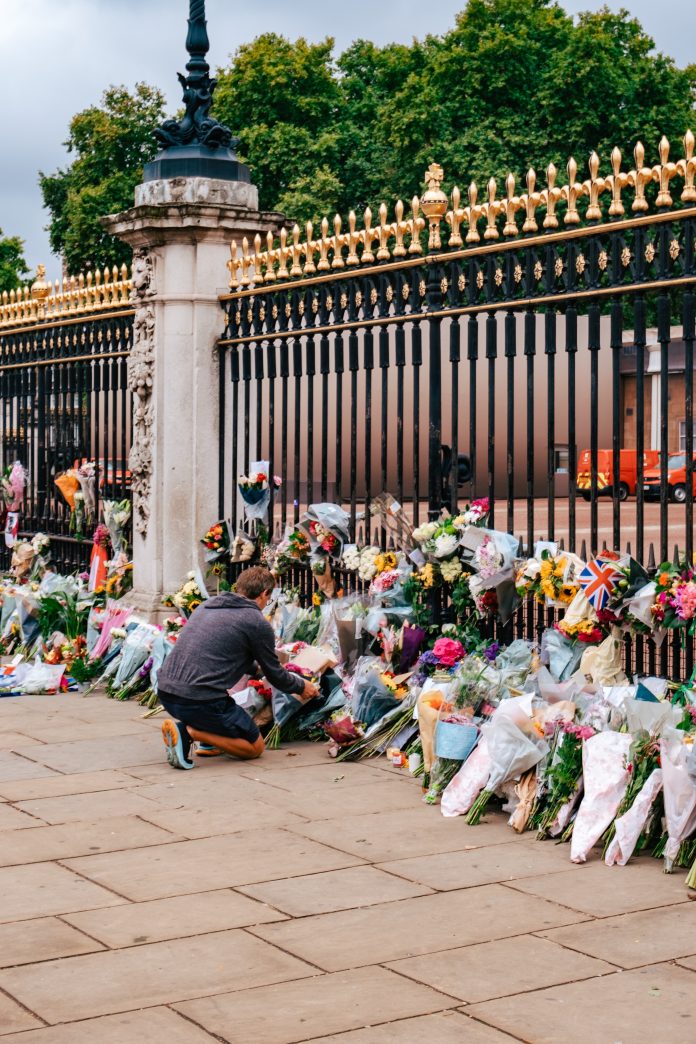
When I found out the Queen had died, the first thing that came to mind was “Wow, how random?” I don’t keep up with the royals, so for me, her death felt like a fleeting thing, and maybe this isn’t ethical. You may be thinking “Why would you say that?” However, is it truly that devastating? It’s not like she wasn’t the most prominent colonial figure.
On Sept. 13th, I had the opportunity to be in the company of Dexter Thomas and his livestream alongside four other peers of mine. Thomasis a Vice journalist who flew in from Los Angeles for a Twitch stream for one of his interviews in his webcam series and for a speaking event that evening on “Japanese Rap Music and remixing the News.” In this interview, Editor-in-Chief of Vice News UK, Zing Tsjeng, popped in the webcam for an interview, where we learned that Queen Elizabeth and the Royal Family were lobbying for certain exemptions from certain legislations, such as the equality legislation which was essentially a legislation against racial discrimination. This was all taking place in Balmoral, a castle in Scotland, which is where she and most of the Royal Family spent a lot of their residence. You may need to reread that considering how extreme that fact is. If you don’t, then continue on as you were.
We learned other things in the livestream pertaining to the power the Royal Family is limited to. The UK is a Constitutional Monarchy and a Parliamentary Democracy, meaning Queen Elizabeth was head of state but not head of government. Therefore, she had veto power. Keep this in mind as you continue to read as you will find the relevance later.
I am currently taking a history class called Politics and Society in Africa with Professor Aldrin Magaya. In this course, we have had productive discourse when looking at the concept of deconstruction and healing from colonialism and coloniality. We have discussed what it looks like to move past colonialism and to acknowledge when thinking about self- reconstruction within Africa, you must deconstruct the lasting effects of coloniality. How does the former queen fit into this you may ask?
During a visit to Professor Magaya’s office, the two of us discussed the reality of Elizabeth's reign. Queen Elizabeth had no governmental power, therefore, she couldn’t necessarily make certain decisions or laws.However, as previously stated, she did have veto power. Meaning, if the head of Government were to pass a law, they would send the legislation for a stamp of approval, which she rarely rejected. Also, Queen Elizabeth had the power of voice, another aspect of her abilities she rarely exercised. This was detrimental to formal colonies and especially African countries who were under British rule. Though the Queen was not an active colonist, she indirectly benefited from colonialism.
The Royal Family’s symbolization of wealth and royalness is a direct product of colonialism. For instance, the world's largest diamond was dangerously mined and then stolen. The Cullinan is used on the British Sovereign crown and the royal scepter. Queen Elizabeth could never and wouldn’t have ever used her power of voice to echo that colonialism indeed is bad because her throne, her jewels, and the rest of her lavish belongings symbolized everything she benefited from it. The British are known for saying that they actually gave Africans their independence but how is this the case when they were fighting for it and lost many lives for it. Not to mention many countries in Africa, weren’t gaining independence until the 1950s and 1960s, and for it to be that recent is frankly blasphemy if you ask me.
To this point, one of the disturbing things is the violation of black bodies in Africa. Many African countries were rebelling for liberation. The Mau Mau Rebellion was an uprising that occurred in Kenya in the attempt of resistance and liberation. In Kenya, the people who were apart of the Mau Mau, who were a Kenyan nationalist group that were formed in the late 1940s, were being subjected to routinely beatings, women were subjected to rape, and other unspeakable acts of violence. What about the African skulls that are currently being held in Museums? Museums in Belgium, France, England, and more. The British essentially slaughtered African royals, neglected their rights of a dignified burial, and used them as artifacts for their manipulated history. As of 2019, the bones of Prince Alemayehu of Ethiopia have been in England for over a century. This should now help make sense of the fact that many Africans are now telling the Royals to bring Elizabth’s Head for display. This, of course, is supposed to be taken as a joke. However, I cannot speak for everyone who was affected by her reign.
Queen Elizabeth was meant to sit, look pretty, and portray this notion of not being political but peaceful. Yet she undoubtedly failed at her job by refusing to acknowledge the horrific moments in history. Her and the Royal Family’s neutrality was the biggest disservice and sign of ingenuity to those who were affected.
To quote the famous Desmond Tutu, “If you are neutral in situations of injustice, you have chosen the side of the oppressor.” I hope this serves as a lesson to not blindly idolize people and their superficial presence.
